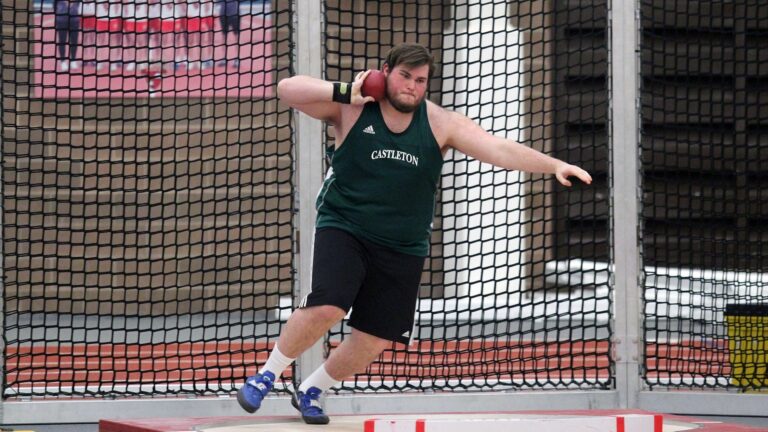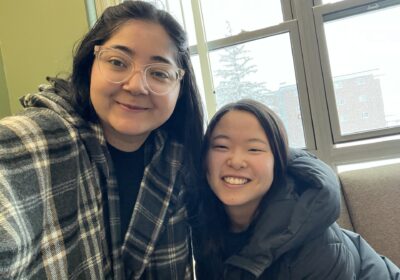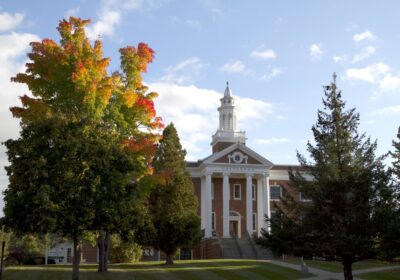Valentine’s Day is for all
Love was in the air last weekend as people all over the Castleton campus and beyond celebrated the relationships that mean the most to them.
While Valentine’s Day is highly criticized for being a “Hallmark” holiday that appears to exist merely to increase the sale of flowers and fine jewelry in the middle of February, couples everywhere have found their own unique ways to celebrate the holiday.
But while there is a plethora of advice and discussion around how straight couples can navigate and celebrate cupid’s day, young queer couples have fewer resources to look to, especially in rural communities where there may be less open discussion of queerness.
Research gathered by the Movement Advancement Project suggests that 20% of LGBTQ+ Americans live in a rural community, and the Williams Institute reports that Vermont has the highest concentration of rural people in the country with 93% of counties being a majority rural.
So what advice is there to give young queer couples in the Castleton Community?
When Castleton University assistant professor Marybeth Lennox-Levins, 47, and her partner Kim Levins, 50, were asked how they celebrate Valentine’s, they both prefaced their answers by admitting that they see the timeline of their relationship as being “before kids” and “after kids.” While the “before kids” version of this couple may have celebrated Valentine’s Day by attending a basketball game that Kim is officiating, the “after kids” version celebrates by focusing on family fun.
“ Kim and I have an 8-year-old daughter, and so we focus on making sure it is a fun day centered around love and friendship. We want to set the stage early on with her that the day should never be a day to feel badly,” Lennox-Levins said.
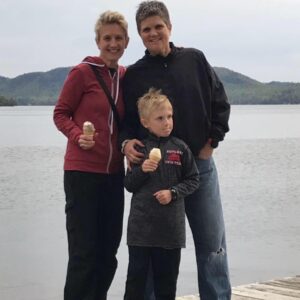
When asked if they felt that the cultural institution of Valentine’s Day made space for LGBTQ+ people, both were quick to admit that they don’t believe there is anything specifically different about Valentine’s Day for queer couples, because in the sense that it’s all about love.
“There’s no difference in my mind. A loving relationship is between people! It’s that simple,” Levins said.
So what advice do they have for young queer couples?
Just be yourself.
“Your confidence will normally intimidate anyone who might not understand. If someone says something, it’s really best to ignore it or just smile. I’ve found a smile in the face of hate, can really throw a “hater” off their game… Take the high road if possible. To quote Michelle Obama, ‘they go low, we go high’” Lennox-Levins explains.
Castleton University Dean of Students Dennis Proulx and his husband Michael Cochrane, both 54, believe in a similarly low-stress approach to their celebrations.
“Subtle celebration, with a card to my husband. And an extra hug on the way out the door to acknowledge us” is how Proulx describes the affair. Cochrane adds that the two would much rather stay home and cook dinner together in lieu of expensive gifts and flowers.
This couple, also asked to consider the cultural institution of Valentine’s Day, had varying viewpoints. Acknowledging the differences that have come over time, “from advertising towards the community, to acceptance at a restaurant to acceptance at events designed for celebrating the holiday…I think companies are finally aware of the monetary value the LGBTQ community can bring to them financially,” Cochrane speculated.
But they also took a moment to dwell on those in the community who have had negative experiences due to their orientation.
“I think, perhaps, for those who have been discriminated against; this day could be a trigger. When families and friends have not been accepting of a relationship, for whatever the reason, Valentine celebrations can be more difficult for the individual,” Proulx said.
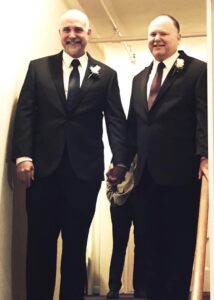
The advice from this couple also emphasizes embracing yourself despite how others may perceive the situation.
“Be yourself. Be able to live the life you deserve. Seek out the support system that will help you live an open lifestyle. Trust people. You will probably find that most people already know you are LGBTQ and are just waiting for you to say it. Spend your time with those that are willing to support you.” said Cochrane.
“Celebrate each other, protect each other, and live openly. Fear from oppression, physical violence, disdain, non-acceptance, and ridicule is real. But so is love. I find most people will support you publicly, I trust the human spirit, but I know that there are true examples that prove me wrong. Living truthfully is healthier for me – but I know I am lucky and privileged in many ways. Some can’t,” Proulx said.

